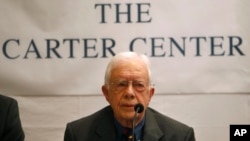Business and Technology
Musk, Twitter Lawyers to Tangle

Twitter Inc. has a strong legal case against Elon Musk walking away from his $44 billion deal to acquire the U.S. social media company but could opt for a renegotiation or settlement instead of a long court fight, according to legal experts.
Courts in this eastern U.S, where the dispute between the Twitter and Elon Musk is set to be litigated, have set a high bar for acquirers being allowed to abandon their deals.
But target companies often choose the certainty of a renegotiated deal at a lower price or financial compensation rather than a messy court battle that can last for many months, three corporate law professors interviewed by Reuters said.
"The argument for settling at something lower is that litigation is expensive," said Adam Badawi, a law professor at UC Berkeley. "And this thing is so messy that it might not be worth it."
Twitter and Musk spokespeople did not immediately respond to requests for comment.
Musk's main claim against Twitter is that it breached their deal by not sharing enough information to back up its claim that spam or fake accounts constitute less than 5% of its active users. Twitter has stood by this estimate but also said it's possible the number of these accounts is higher.
Musk also said in a letter to Twitter on Friday that the company's misrepresentation of the number of spam accounts might be a "material adverse effect (MAE)" that would allow him to walk away under the terms of the deal contract.
But legal experts said Delaware courts view MAEs as dramatic, unexpected events that cause long-term harm to a company's performance.
Legal experts were dismissive of the idea that inaccurate spam account numbers would amount to an MAE for Twitter on the same level as the problems that plagued Akorn.
"If it goes to court, Musk has the burden to prove more likely than not, that the spam account numbers not only were false, but they were so false that it will have significant effect on Twitter's earnings going forward," said Ann Lipton, associate dean for faculty research at Tulane Law School.
Most of the times the courts find in favor of the target companies and order acquirers to complete their deals - a legal remedy known as "specific performance."









